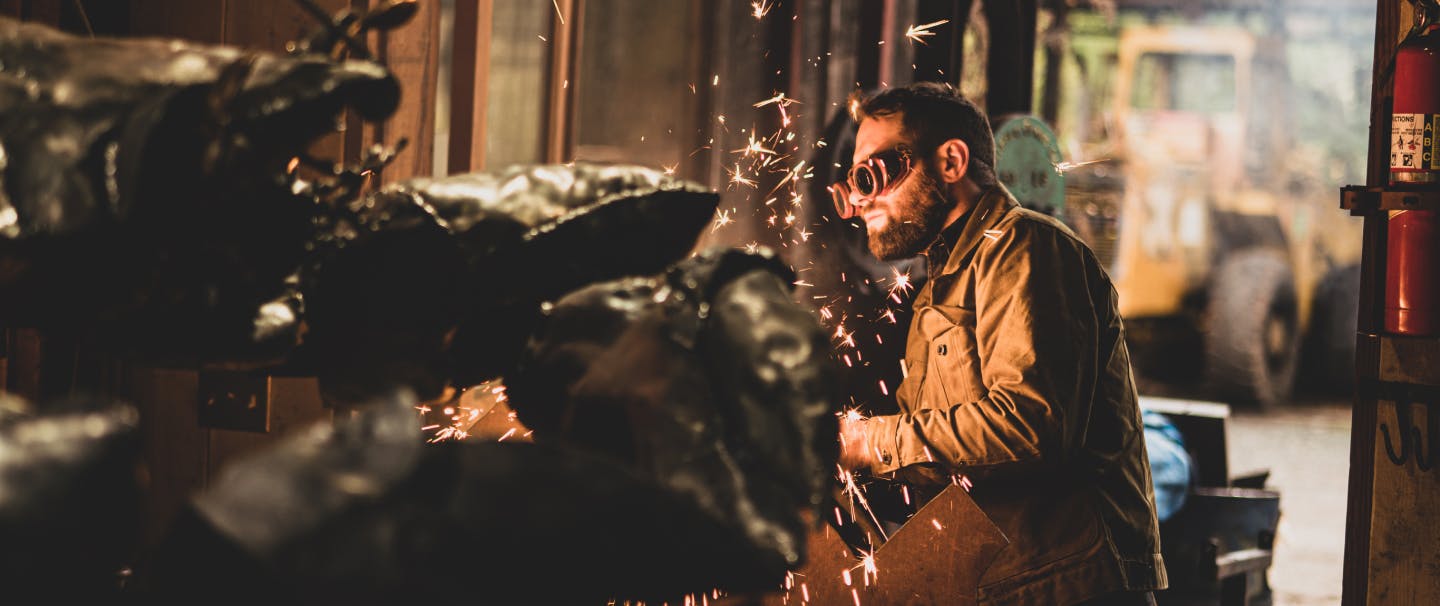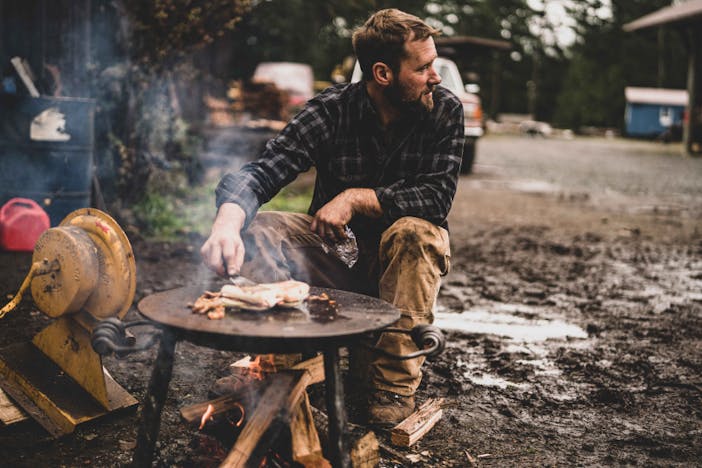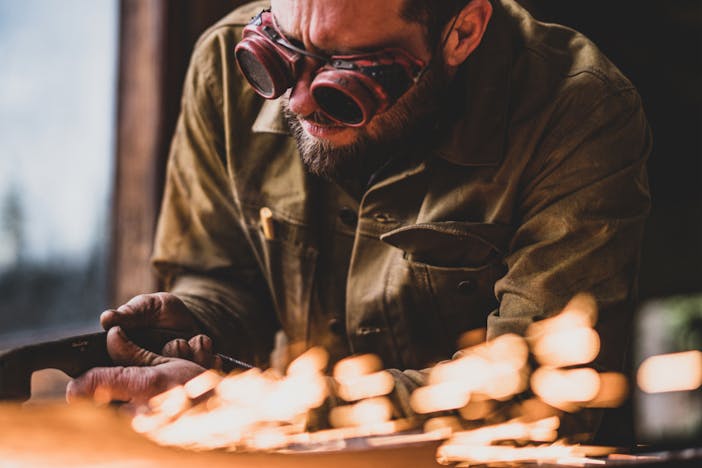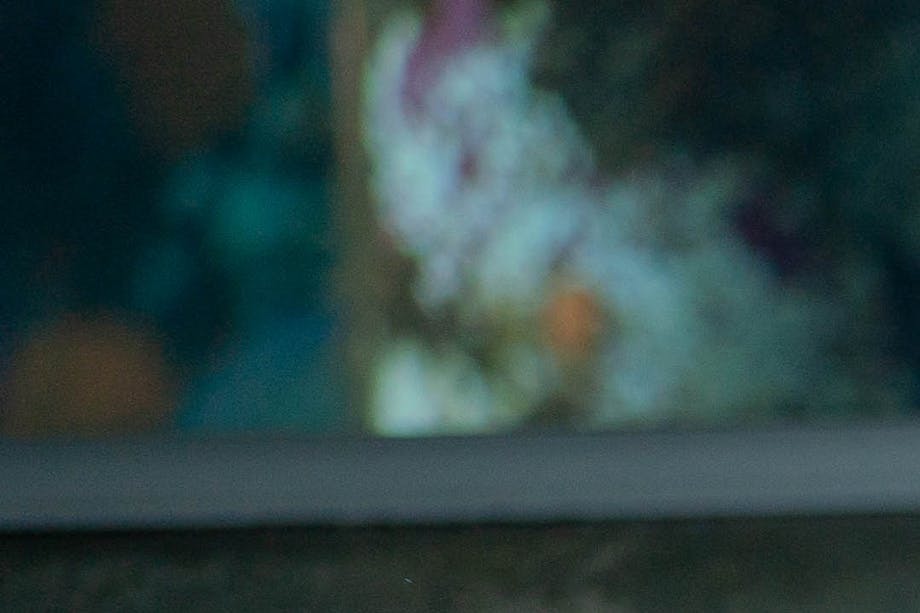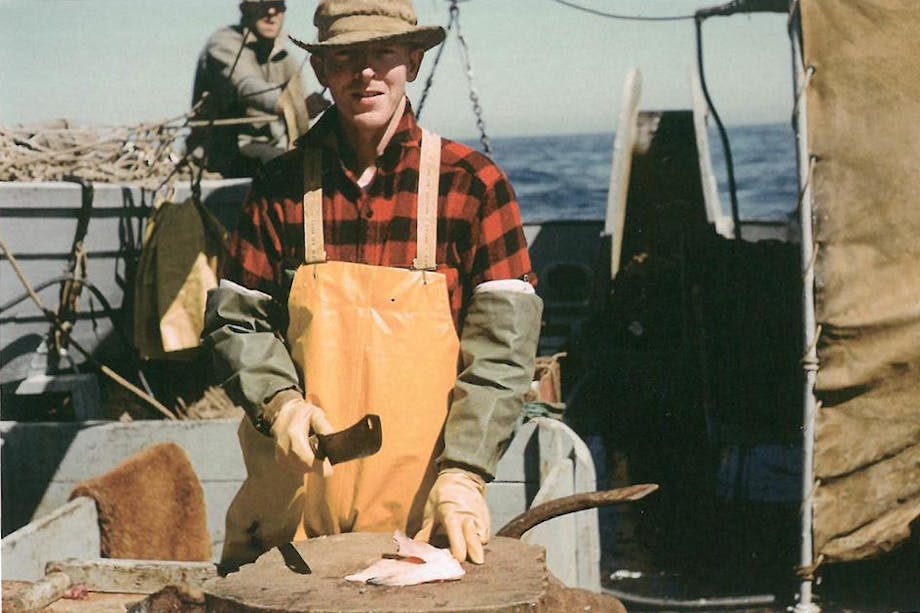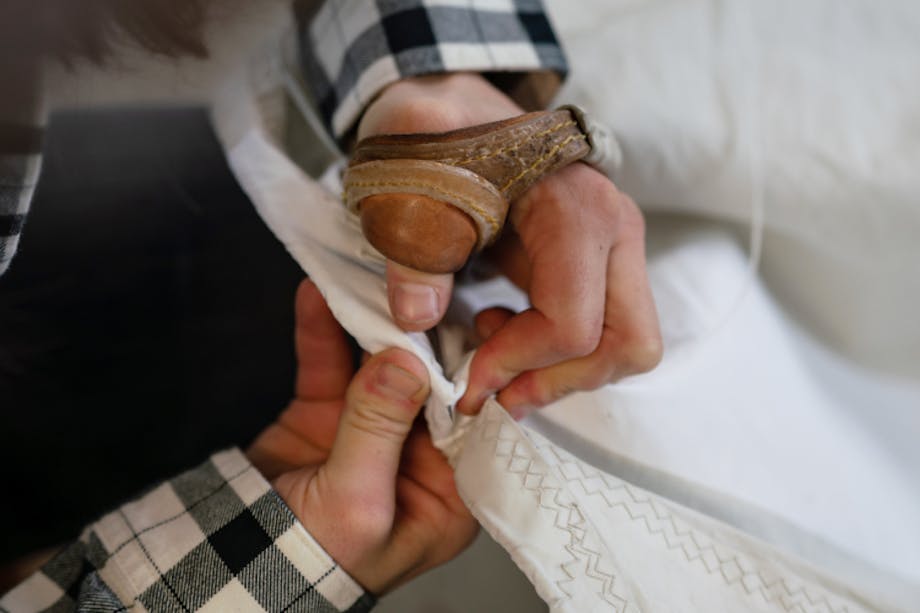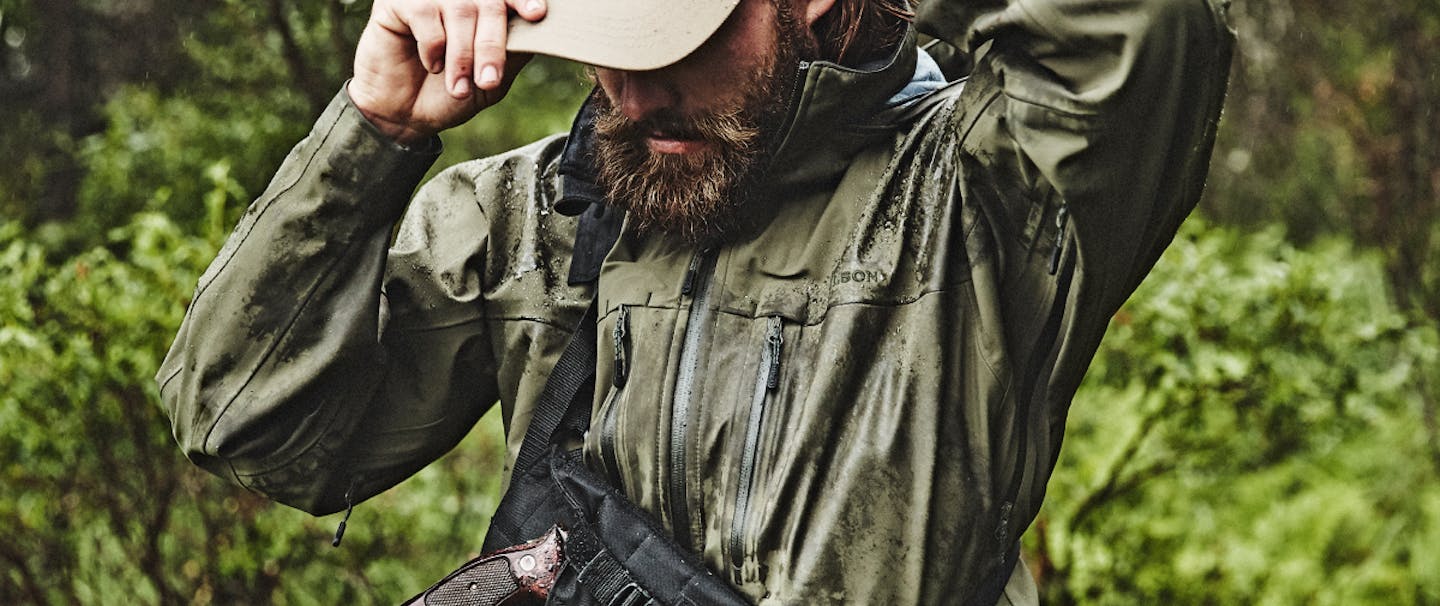SCULPTOR ZACKARYA LECK’S HANDS TELL A STORY: SCARS AND POWERFUL MUSCLES HAVE FORMED OVER DECADES OF COAXING HIS ARTWORK AND LIVELIHOOD FROM VERY HARD MATERIALS. IT IS WITH THOSE HANDS THAT HE CREATES WORKS OF ART FROM IRON, STONE, AND WOOD.
A blacksmith by training, Leck got an early start watching and later assisting his blacksmith father, Andrew Leck, and his mother, Phyllis Leck, a weaver and textile artist. As a young man, Leck traveled widely, studying metalsmithing in college in England and gaining valuable work experience from master smiths in the UK and Israel.
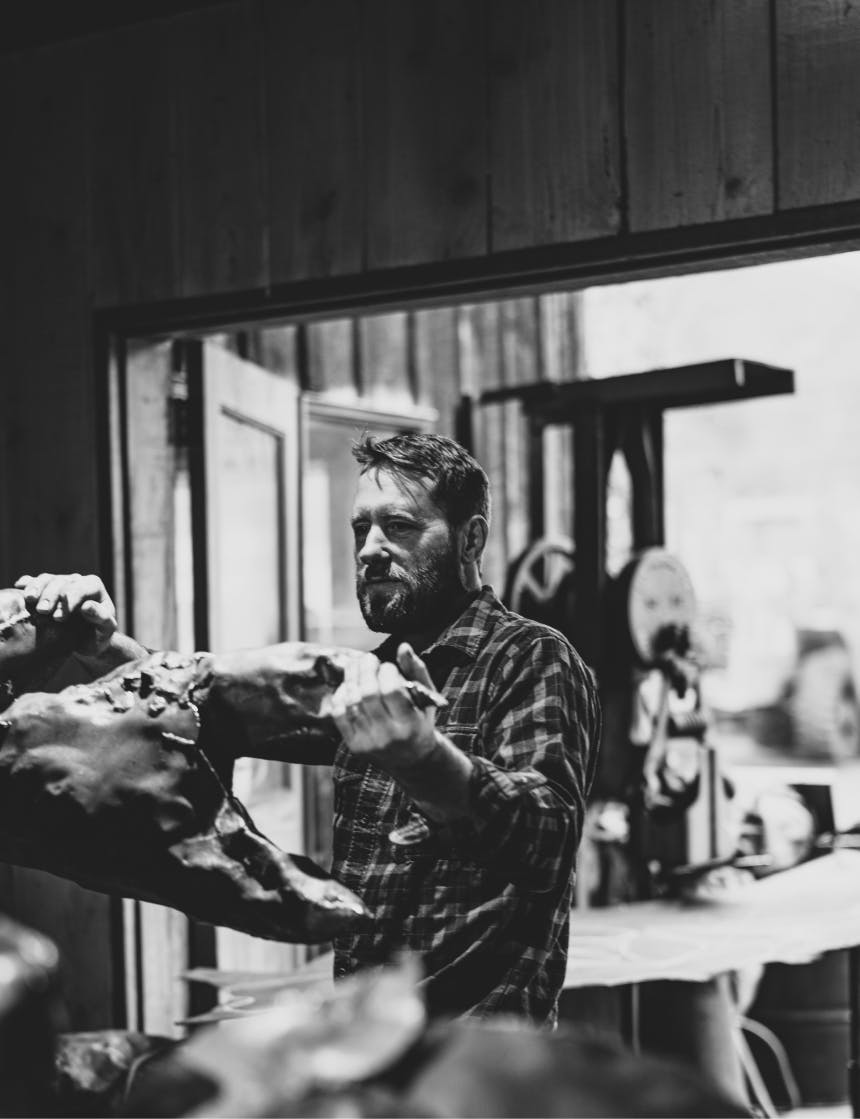
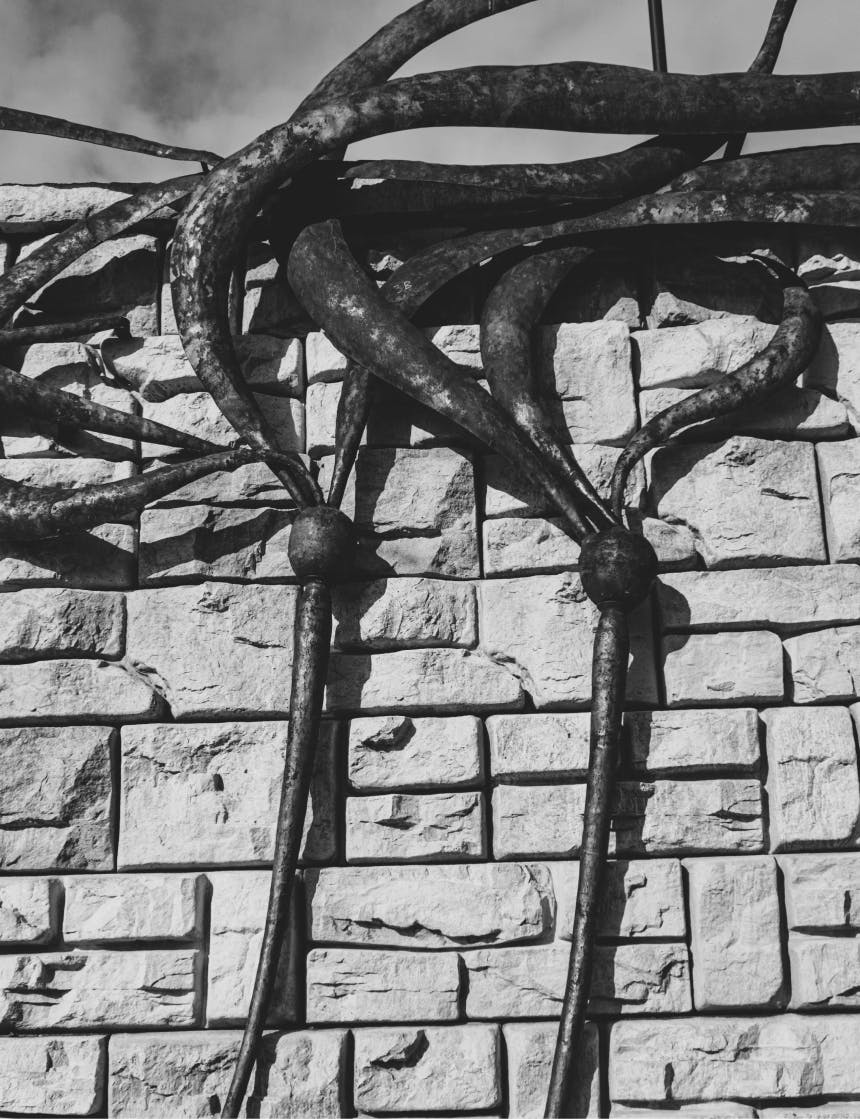
"There is this blissful state, a place where I feel connected to those artisans who came before me and in harmony with the tools and the material."
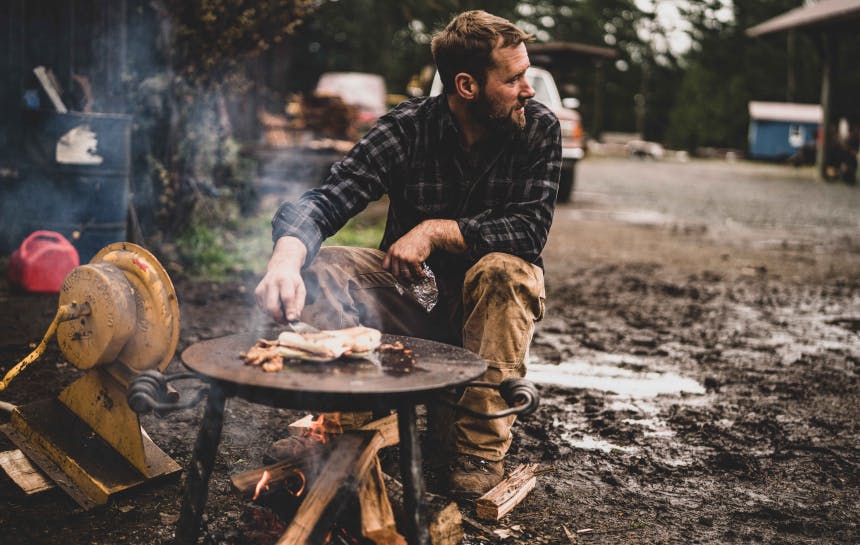
Since 2001 he has operated his forge on Orcas Island, northwest of Seattle in Washington state. His studio executes a wide range of commissions, from large public art pieces to delicate personal objects like wedding bands and belt buckles.
Life on Orcas Island is both challenging and rewarding. There is a feeling of camaraderie, a throwback to simpler times when neighbors leaned on each other, everyone filling a need. Farmers, fishermen, brewers, craftsmen, and artists work together, each one celebrating the other’s successes. It is in this setting of relative isolation that Leck’s art thrives.
The stunning natural world of the Salish Sea continually influences and inspires Leck’s body of work. He looks for any excuse to venture out on the water, or under the water working as a commercial diver. One of his passions is foraging for the many ocean delicacies present in the sea, such as Dungeness crab, spot prawns, seaweed, oysters, and mussels. Other times he braves the frigid water with his friends simply for the exhilaration of a brisk swim.
A recurring theme of Leck’s work has been the thoughtful repurposing of metal rescued from the waste stream. According to Leck, “there’s no such thing as scrap metal,” for in his hands a cast-off oil tank may be transformed into a whimsical sculpture.
He recently completed a commission to create a gate weighing over two tons, which was fashioned entirely from antique iron gleaned from farmers’ fields and shipyards around Puget Sound. To Leck, the different elements of the gate represent a tangible homage to the toils of generations that came before.
Leck says that “the blacksmith was the original upcycler,” forging swords into ploughshares and making or repairing much of the workings of the pre-industrial world. Preserving this link to the past through the timeless lessons of the forge is a cornerstone of Leck’s creative journey. While working, Leck explains, “There is this blissful state, a place where I feel connected to those artisans who came before me and in harmony with the tools and the material.”
A recurring theme of Leck’s work has been the thoughtful repurposing of metal rescued from the waste stream. According to Leck, “there’s no such thing as scrap metal,” for in his hands a cast-off oil tank may be transformed into a whimsical sculpture.
Another theme of Leck’s recent work has been the innovative use of technology in conjunction with ancient forging techniques, an excellent example being the “Kelp Forest,” a 75’-long Corten steel installation at the Orcas ferry terminal. This highly visible public sculpture interprets a stand of iconic bull kelp for everyone arriving on the island. Leck achieved the monumental scale of the piece by translating his cardboard maquette into computer files that could then be profile-cut on his CNC plasma cutter. He then heated and shaped the individual elements, a process that required many months of ingenuity and effort, all for the purpose of bringing the sculpture to life.
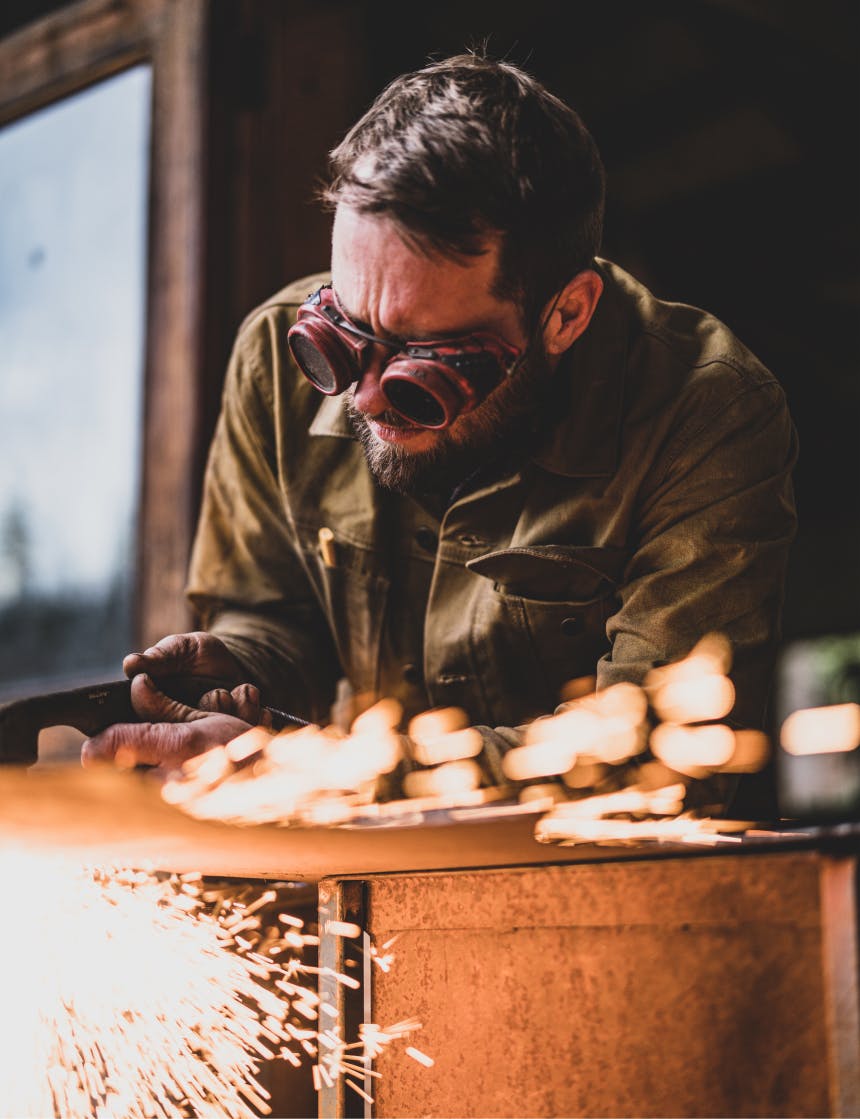
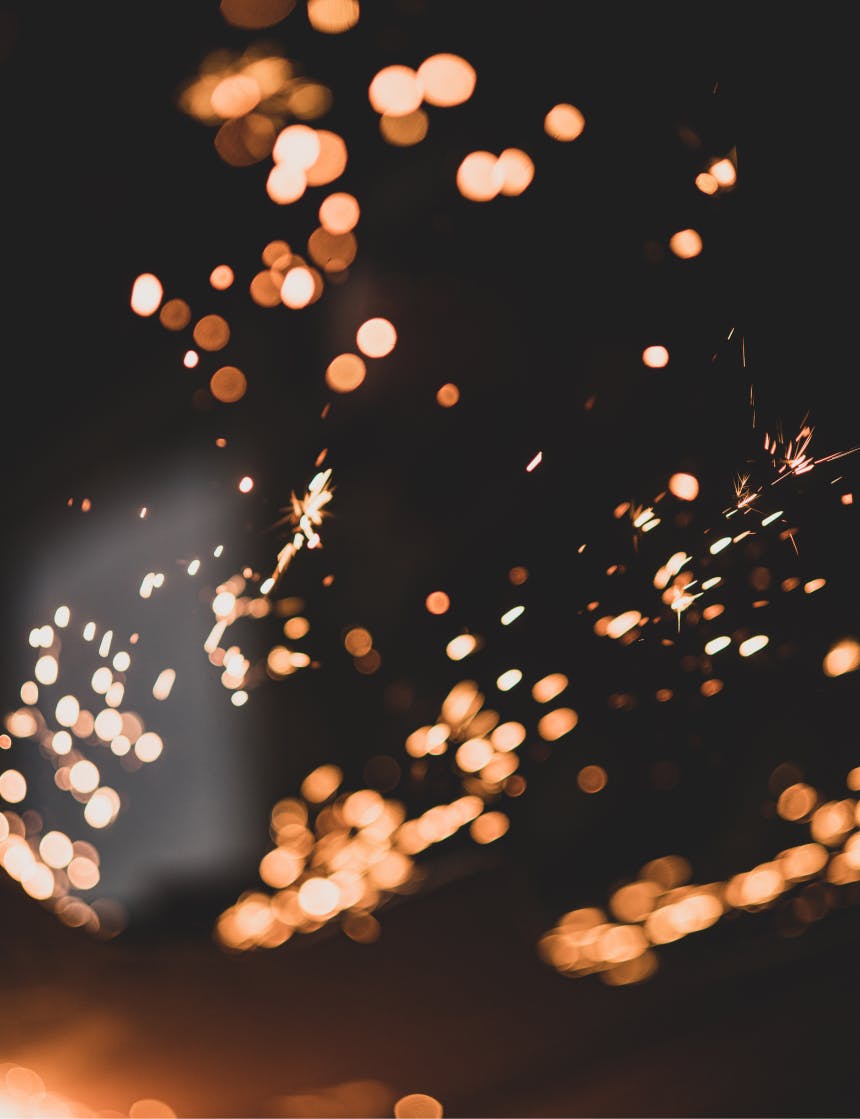
His piece of art is already showing the passage of time— flecks of rust are appearing on the steel, just as Leck intended. Over time its surface will be transformed into a sunset of colors, the sculpture telling its story to all who visit.
Being a full-time artist can be challenging. Work has come in waves, and heartbreak and happiness have gone hand in hand. Through the many challenges, Leck perseveres, coaxing new life out of found objects, using his hands to offer rebirth. For him, there is no other way.
